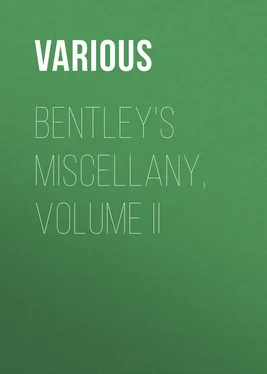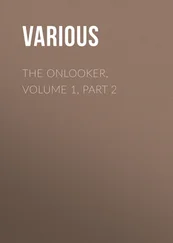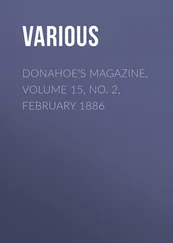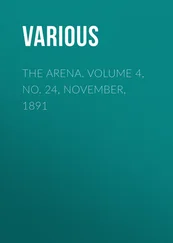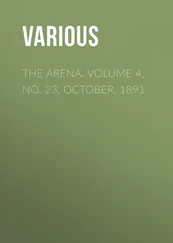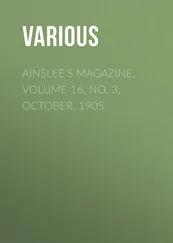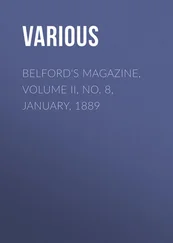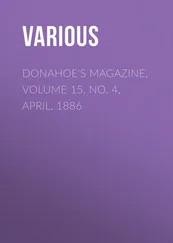Various - Bentley's Miscellany, Volume II
Здесь есть возможность читать онлайн «Various - Bentley's Miscellany, Volume II» — ознакомительный отрывок электронной книги совершенно бесплатно, а после прочтения отрывка купить полную версию. В некоторых случаях можно слушать аудио, скачать через торрент в формате fb2 и присутствует краткое содержание. Издательство: Иностранный паблик, Жанр: foreign_antique, foreign_prose, на английском языке. Описание произведения, (предисловие) а так же отзывы посетителей доступны на портале библиотеки ЛибКат.
- Название:Bentley's Miscellany, Volume II
- Автор:
- Издательство:Иностранный паблик
- Жанр:
- Год:неизвестен
- ISBN:нет данных
- Рейтинг книги:3 / 5. Голосов: 1
-
Избранное:Добавить в избранное
- Отзывы:
-
Ваша оценка:
- 60
- 1
- 2
- 3
- 4
- 5
Bentley's Miscellany, Volume II: краткое содержание, описание и аннотация
Предлагаем к чтению аннотацию, описание, краткое содержание или предисловие (зависит от того, что написал сам автор книги «Bentley's Miscellany, Volume II»). Если вы не нашли необходимую информацию о книге — напишите в комментариях, мы постараемся отыскать её.
Bentley's Miscellany, Volume II — читать онлайн ознакомительный отрывок
Ниже представлен текст книги, разбитый по страницам. Система сохранения места последней прочитанной страницы, позволяет с удобством читать онлайн бесплатно книгу «Bentley's Miscellany, Volume II», без необходимости каждый раз заново искать на чём Вы остановились. Поставьте закладку, и сможете в любой момент перейти на страницу, на которой закончили чтение.
Интервал:
Закладка:
"Susan, look here; see what a nasty scratch I have got upon my hand," said the young lady, when routed out at length from her hiding-place to her noontide meal.
"Yes, Miss, this is always the way with you! mend, mend, mend, – nothing but mend! Scrambling about among the bushes, and tearing your clothes to rags. What with you, and with madam's farthingales and kirtles, a poor bower-maiden has a fine time of it!"
"But I have not torn my clothes, Susan, and it was not the bushes; it was the doll: only see what a great ugly pin I have pulled out of it! and look, here is another!" As she spoke, Marian drew forth one of those extended pieces of black pointed wire, with which, in the days of toupees and pompoons, our foremothers were wont to secure their fly-caps and head-gear from the impertinent assaults of Zephyrus and the "Little Breezes."
"And pray, Miss, where did you get this pretty doll, as you call it?" asked Susan, turning over the puppet, and viewing it with a scrutinizing eye.
"Mamma gave it me," said the child. – This was a fib!
"Indeed!" quoth the girl thoughtfully; and then, in half soliloquy, and a lower key, "Well! I wish I may die if it doesn't look like my master! – But come to your dinner, miss. Hark! the bell is striking One !"
Meanwhile, Master Thomas Marsh, and his man Ralph, were threading the devious paths, then, as now, most pseudonymously dignified with the name of roads, that wound between Marshton-Hall and the frontier of Romney Marsh. Their progress was comparatively slow; for, though the brown mare was as good a roadster as man might back, and the gelding no mean nag of his hands, yet the tracks, rarely traversed save by the rude wains of the day, miry in the "bottoms," and covered with loose and rolling stones on the higher grounds, rendered barely passable the perpetual alternation of hill and valley.
The master rode on in pain, and the man in listlessness; although the intercourse between two individuals so situated was much less restrained in those days than might suit the refinement of a later age, little passed approximating to conversation beyond an occasional and half-stifled groan from the one, or a vacant whistle from the other. An hour's riding had brought them among the woods of Acryse; and they were about to descend one of those green and leafy lanes, rendered by matted and over-arching branches alike impervious to shower or sunbeam, when a sudden and violent spasm seized on Master Marsh, and nearly caused him to fall from his horse. With some difficulty he succeeded in dismounting, and seating himself by the road side. Here he remained for a full half-hour in great apparent agony; the cold sweat rolled in large round drops adown his clammy forehead, a universal shivering palsied every limb, his eye-balls appeared to be starting from their sockets, and to his attached, though dull and heavy serving-man, he seemed as one struggling in the pangs of impending dissolution. His groans rose thick and frequent; and the alarmed Ralph was hesitating between his disinclination to leave him, and his desire to procure such assistance as one of the few cottages, rarely sprinkled in that wild country, might afford, when, after a long-drawn sigh, his master's features as suddenly relaxed: he declared himself better, the pang had passed away, and, to use his own expression, he "felt as if a knife had been drawn from out his very heart." With Ralph's assistance, after a while, he again reached his saddle; and, though still ill at ease from a deep-seated and gnawing pain, which ceased not, as he averred, to torment him, the violence of the paroxysm was spent, and it returned no more.
Master and man pursued their way with increased speed, as, emerging from the wooded defiles, they at length neared the coast; then, leaving the romantic castle of Saltwood, with its neighbouring town of Hithe, a little on their left, they proceeded along the ancient paved causeway, and, crossing the old Roman road, or Watling, plunged again into the woods that stretched between Lympne and Ostenhanger.
The sun rode high in the heavens, and its meridian blaze was powerfully felt by man and horse, when, again quitting their leafy covert, the travellers debouched on the open plain of Aldington Frith, a wide tract of unenclosed country stretching down to the very borders of "the Marsh" itself. Here it was, in the neighbouring chapelry, the site of which may yet be traced by the curious antiquary, that Elizabeth Barton, the "Holy Maid of Kent," had, something less than a hundred years previous to the period of our narrative, commenced that series of supernatural pranks which eventually procured for her head an unenvied elevation upon London Bridge; and, though the parish had since enjoyed the benefit of the incumbency of Master Erasmus's illustrious and enlightened Namesake, yet, truth to tell, some of the old leaven was even yet supposed to be at work. The place had, in fact, an ill name; and, though Popish miracles had ceased to electrify its denizens, spells and charms, operating by a no less wondrous agency, were said to have taken their place. Warlocks, and other unholy subjects of Satan, were reported to make its wild recesses their favourite rendezvous, and that to an extent which eventually attracted the notice of no less a personage than the sagacious Matthew Hopkins himself, Witchfinder-General to the British government.
A great portion of the Frith, or Fright, as the name was then, and is still, pronounced, had formerly been a Chace, with rights of Free-warren, &c. appertaining to the Archbishops of the Province. Since the Reformation, however, it had been disparked; and when Master Thomas Marsh, and his man Ralph, entered upon its confines, the open greensward exhibited a lively scene, sufficiently explanatory of certain sounds that had already reached their ears while yet within the sylvan screen which concealed their origin.
It was Fair-day: booths, stalls, and all the rude paraphernalia of an assembly that then met as much for the purposes of traffic as festivity, were scattered irregularly over the turf; pedlars, with their packs; horse-croupers, pig-merchants, itinerant vendors of crockery and cutlery, wandered promiscuously among the mingled groups, exposing their several wares and commodities, and soliciting custom. On one side was the gaudy riband, making its mute appeal to rustic gallantry; on the other the delicious brandy-ball and alluring lollipop, compounded after the most approved receipt in the "True Gentlewoman's Garland," and "raising the waters" in the mouth of many an expectant urchin.
Nor were rural sports wanting to those whom pleasure, rather than business, had drawn from their humble homes. Here was the tall and slippery pole, glittering in its grease, and crowned with the ample cheese, that mocked the hopes of the discomfited climber. There the fugitive pippin, swimming in water not of the purest, and bobbing from the expanded lips of the juvenile Tantalus. In this quarter the ear was pierced by squeaks from some beleaguered porker, whisking his well-soaped tail from the grasp of one already in fancy his captor. In that, the eye rested, with undisguised delight, upon the grimaces of grinning candidates for the honours of the horse-collar. All was fun, frolic, courtship, junketing, and jollity.
Maid Marian, indeed, with her lieges, Robin Hood, Scarlet, and Little John, was wanting; Friar Tuck was absent; even the Hobby-horse had disappeared: but the agile Morrice-dancers yet were there, and jingled their bells merrily among stalls well stored with gingerbread, tops, whips, whistles, and all those noisy instruments of domestic torture in which scenes like these are even now so fertile. – Had I a foe whom I held at deadliest feud, I would entice his child to a Fair, and buy him a Whistle and a Penny-trumpet!
In one corner of the green, a little apart from the thickest of the throng, stood a small square stage, nearly level with the chins of the spectators, whose repeated bursts of laughter seemed to intimate the presence of something more than usually amusing. The platform was divided into two unequal portions; the smaller of which, surrounded by curtains of a coarse canvass, veiled from the eyes of the profane the penetralia of this moveable temple of Esculapius, for such it was. Within its interior, and secure from vulgar curiosity, the Quack-salver had hitherto kept himself ensconced; occupied, no doubt, in the preparation and arrangement of that wonderful panacea which was hereafter to shed the blessings of health among the admiring crowd. Meanwhile his attendant Jack-pudding was busily employed on the proscenium , doing his best to attract attention by a practical facetiousness which took wonderfully with the spectators, interspersing it with the melodious notes of a huge cow's horn. The fellow's costume varied but little in character from that in which the late – (alas! that we should have to write the word!) – the late Mr. Joseph Grimaldi was accustomed to present himself before "a generous and enlightened public: " the principal difference consisted in this, that the upper garment was a long white tunic of a coarse linen, surmounted by a caricature of the ruff then fast falling into disuse, and was secured from the throat downwards by a single row of broad white metal buttons. His legs were cased in loose wide trousers of the same material; while his sleeves, prolonged to a most disproportionate extent, descended far below the fingers, and acted as flappers in the summersets and caracoles with which he diversified and enlivened his antics. Consummate impudence, not altogether unmixed with a certain sly humour, sparkled in his eye through the chalk and ochre with which his features were plentifully bedaubed; and especially displayed itself in a succession of jokes, the coarseness of which did not seem to detract from their merit in the eyes of his applauding audience.
Читать дальшеИнтервал:
Закладка:
Похожие книги на «Bentley's Miscellany, Volume II»
Представляем Вашему вниманию похожие книги на «Bentley's Miscellany, Volume II» списком для выбора. Мы отобрали схожую по названию и смыслу литературу в надежде предоставить читателям больше вариантов отыскать новые, интересные, ещё непрочитанные произведения.
Обсуждение, отзывы о книге «Bentley's Miscellany, Volume II» и просто собственные мнения читателей. Оставьте ваши комментарии, напишите, что Вы думаете о произведении, его смысле или главных героях. Укажите что конкретно понравилось, а что нет, и почему Вы так считаете.
